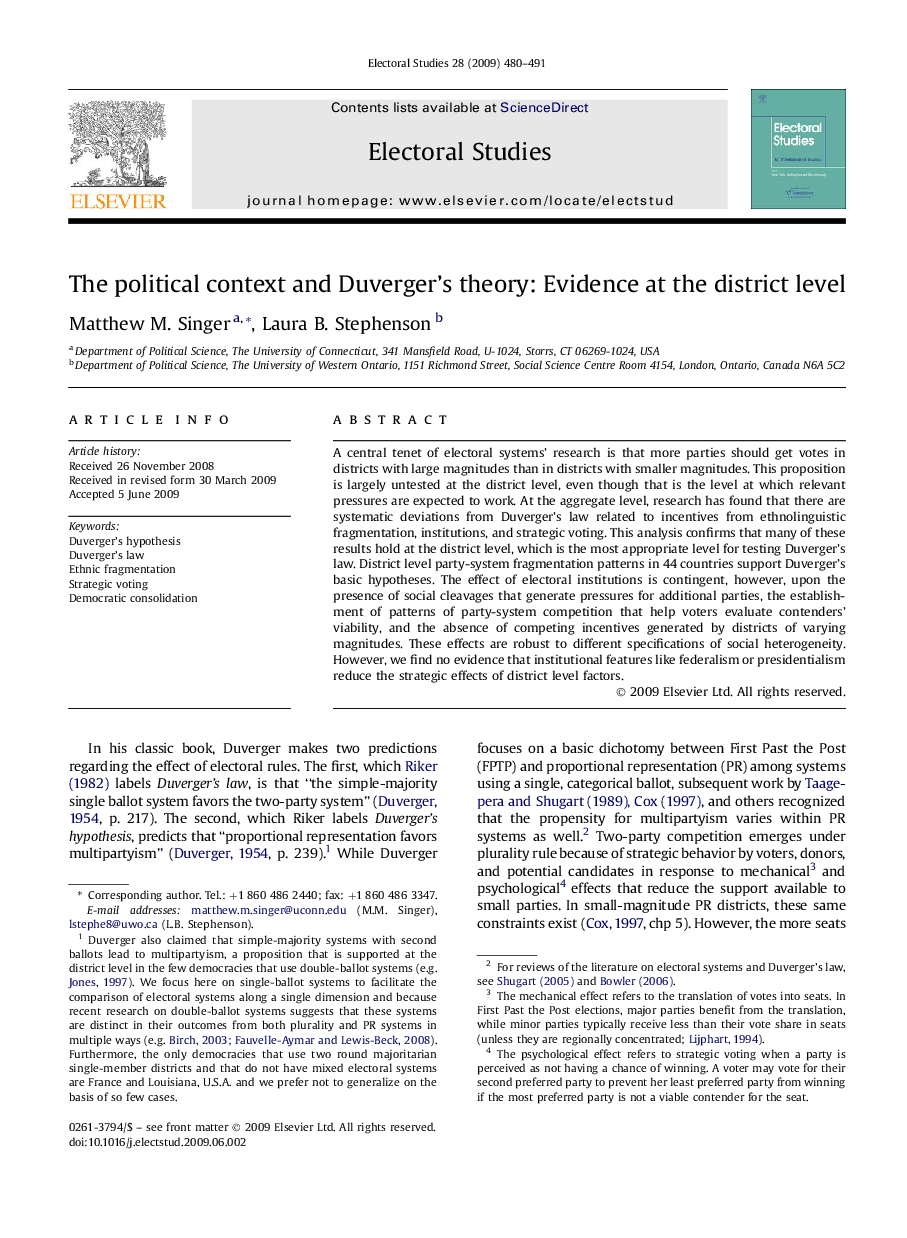| Article ID | Journal | Published Year | Pages | File Type |
|---|---|---|---|---|
| 1052317 | Electoral Studies | 2009 | 12 Pages |
A central tenet of electoral systems' research is that more parties should get votes in districts with large magnitudes than in districts with smaller magnitudes. This proposition is largely untested at the district level, even though that is the level at which relevant pressures are expected to work. At the aggregate level, research has found that there are systematic deviations from Duverger's law related to incentives from ethnolinguistic fragmentation, institutions, and strategic voting. This analysis confirms that many of these results hold at the district level, which is the most appropriate level for testing Duverger's law. District level party-system fragmentation patterns in 44 countries support Duverger's basic hypotheses. The effect of electoral institutions is contingent, however, upon the presence of social cleavages that generate pressures for additional parties, the establishment of patterns of party-system competition that help voters evaluate contenders' viability, and the absence of competing incentives generated by districts of varying magnitudes. These effects are robust to different specifications of social heterogeneity. However, we find no evidence that institutional features like federalism or presidentialism reduce the strategic effects of district level factors.
